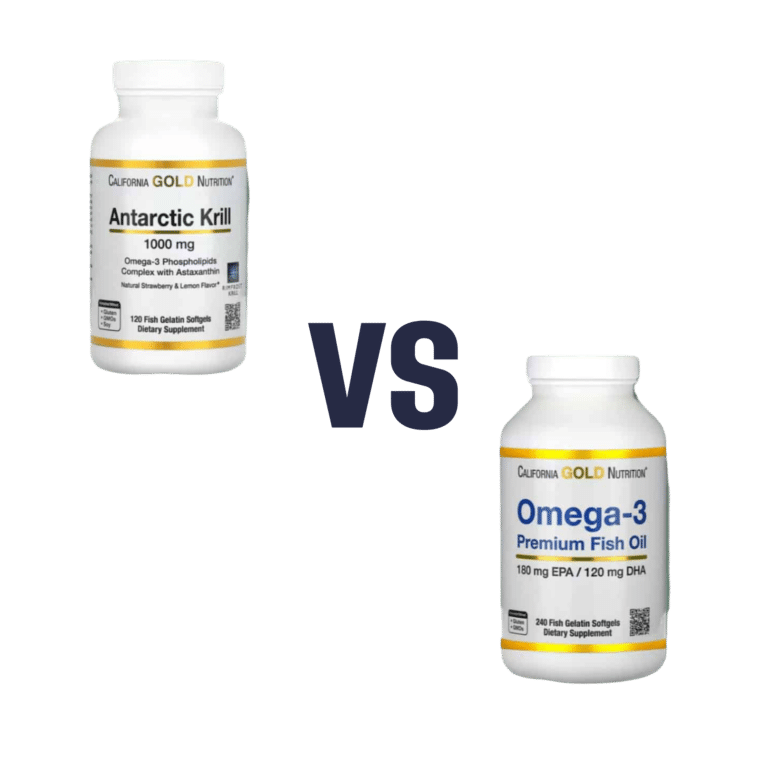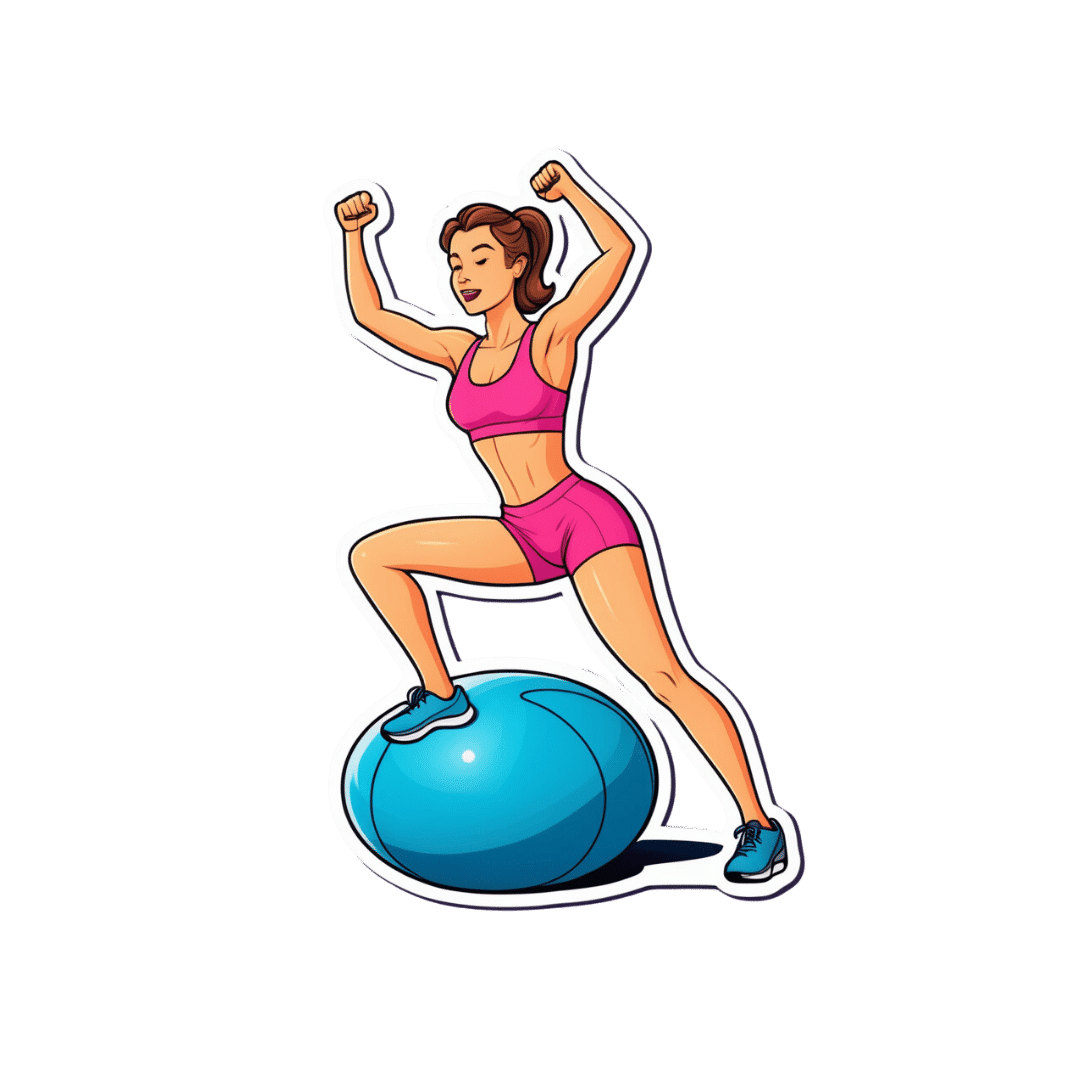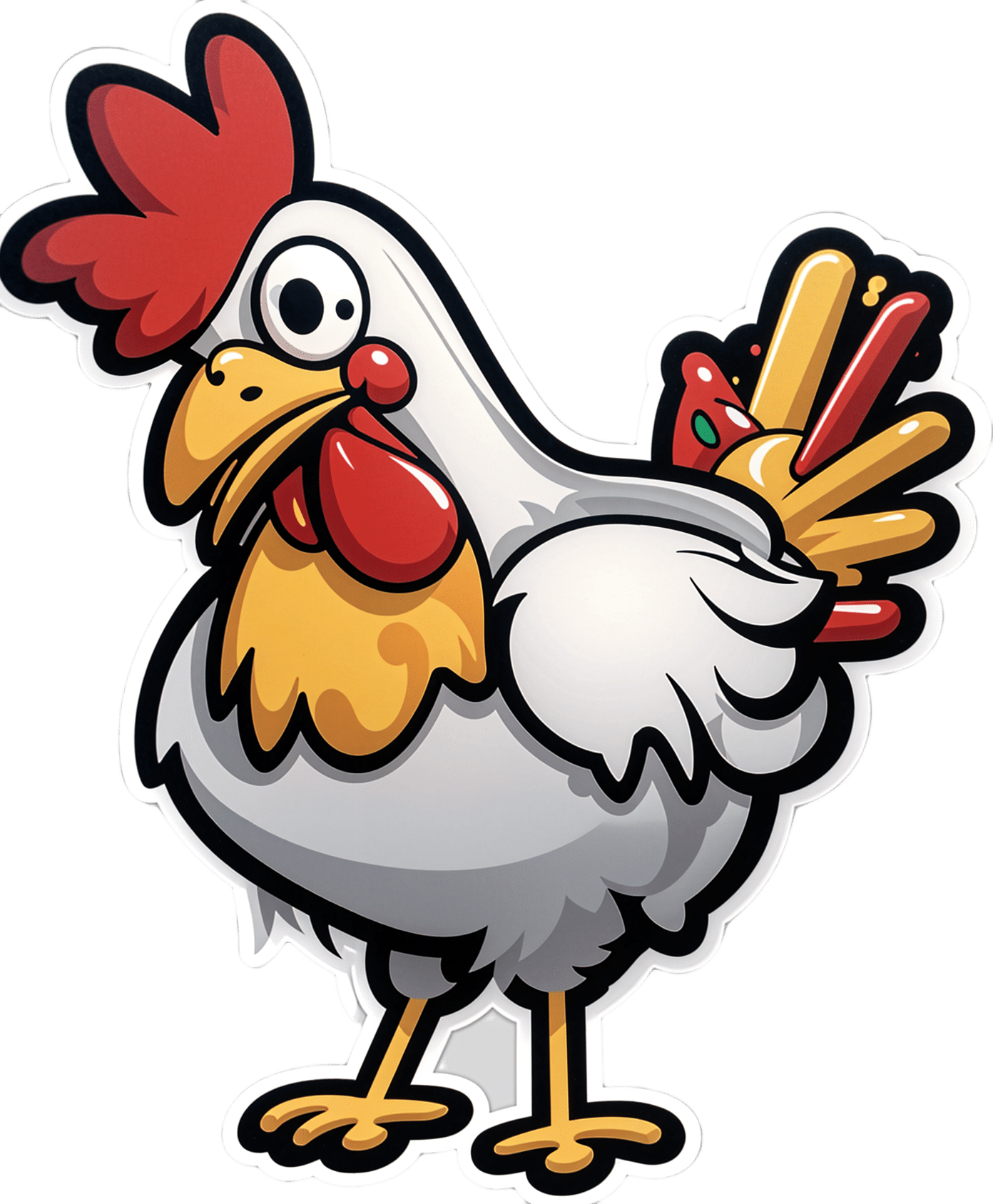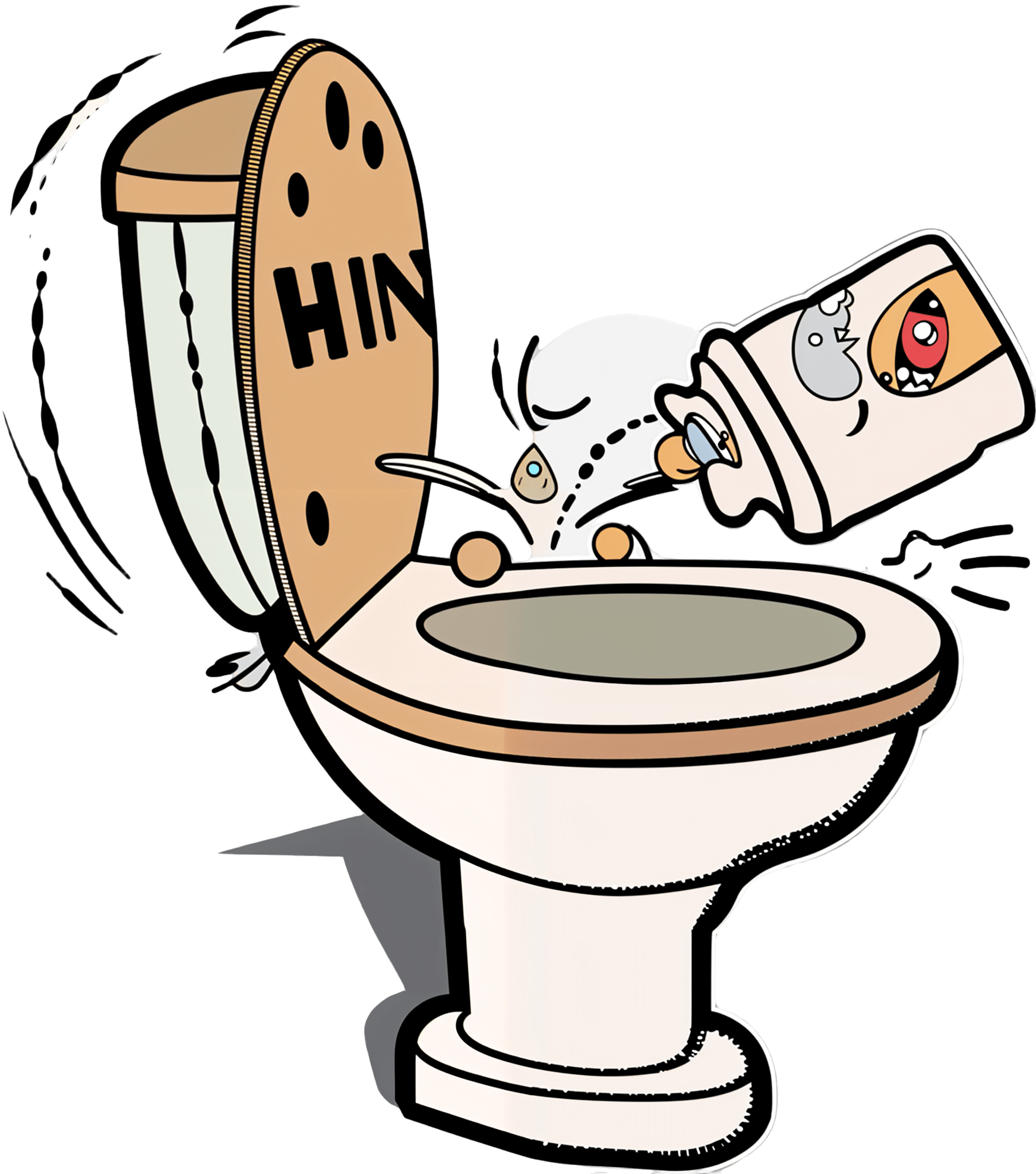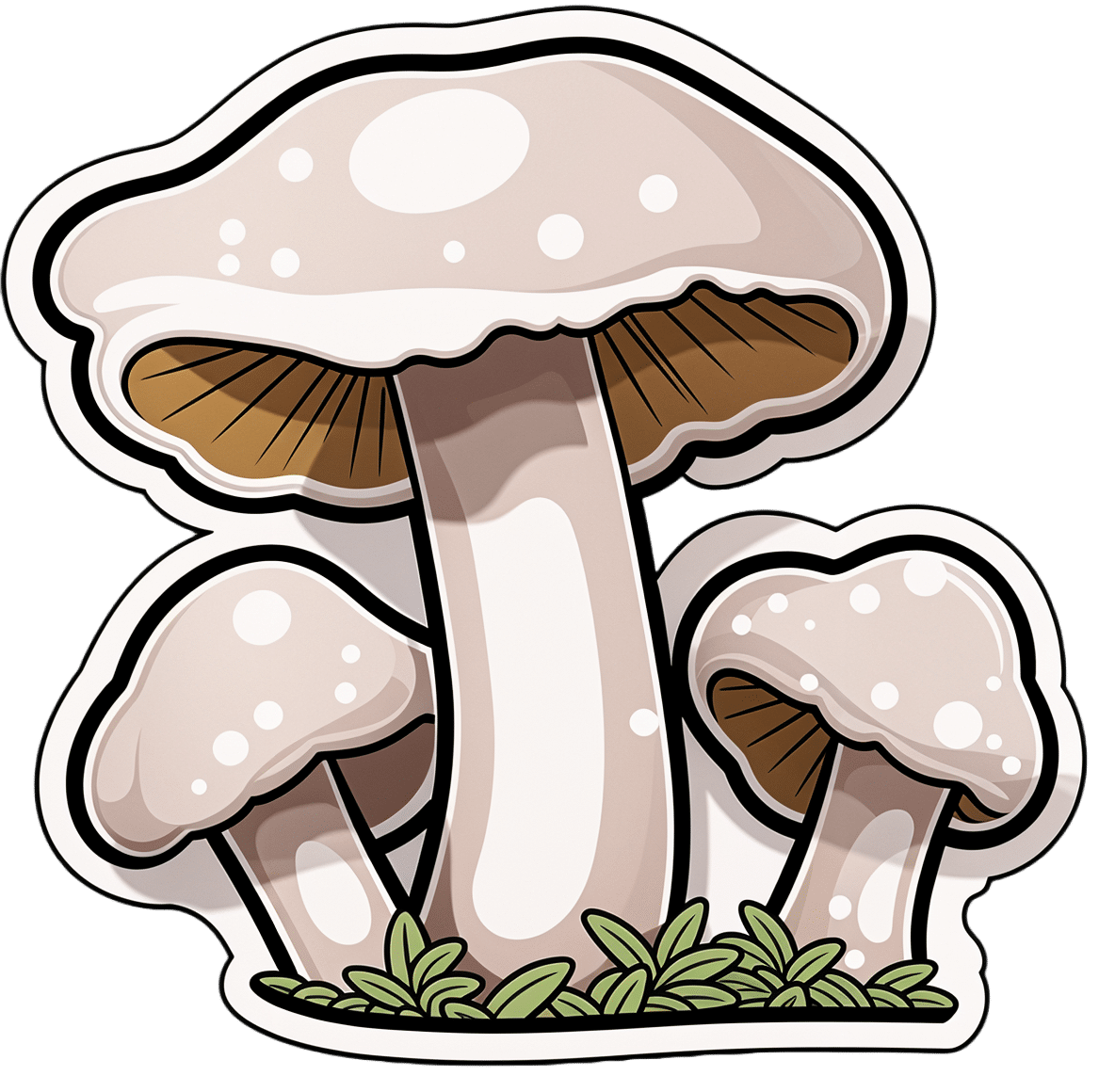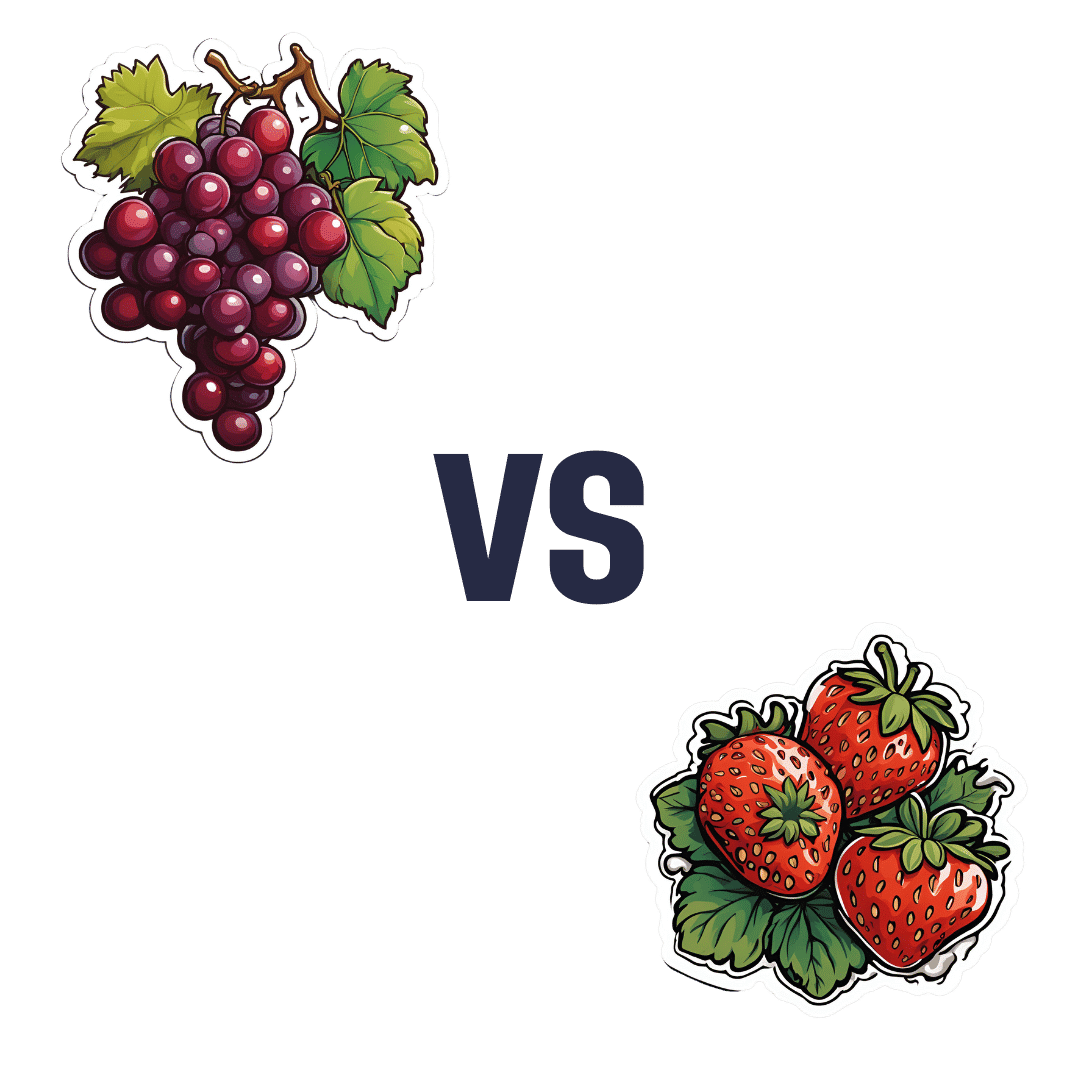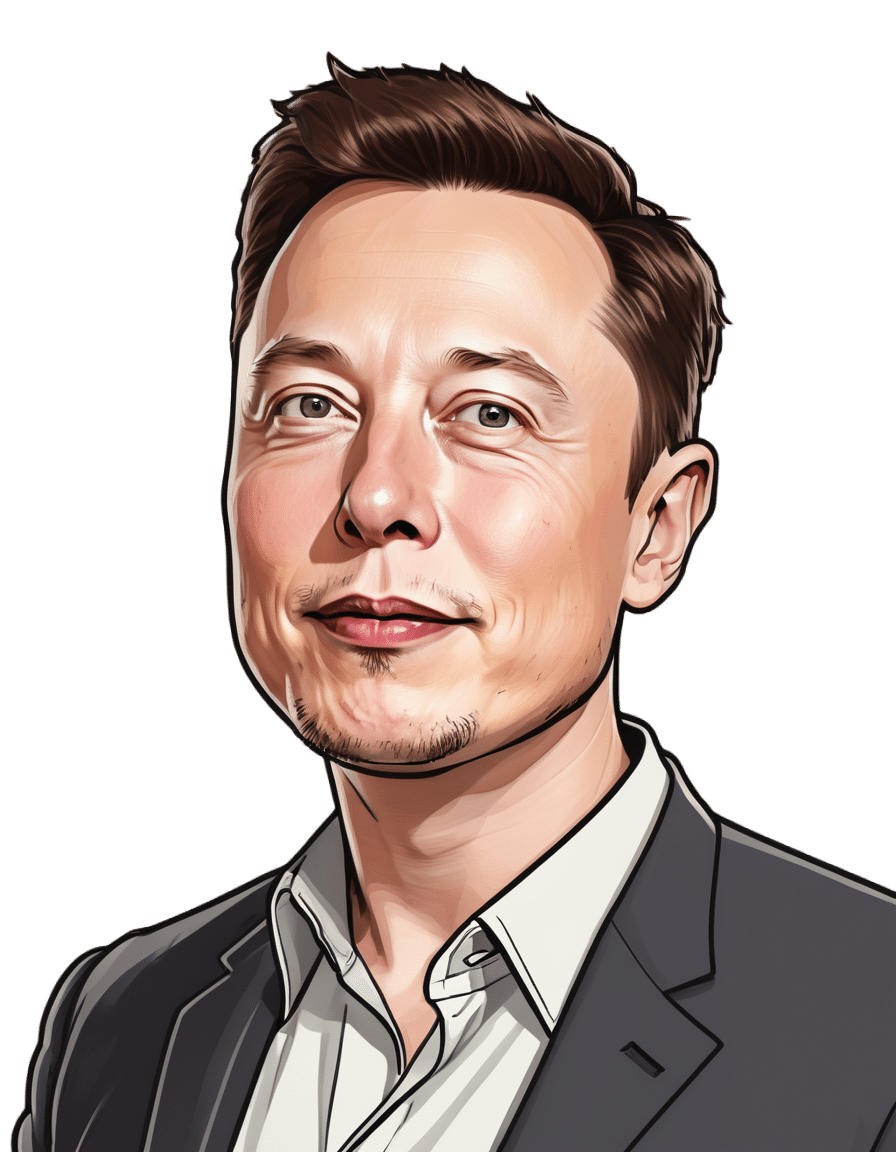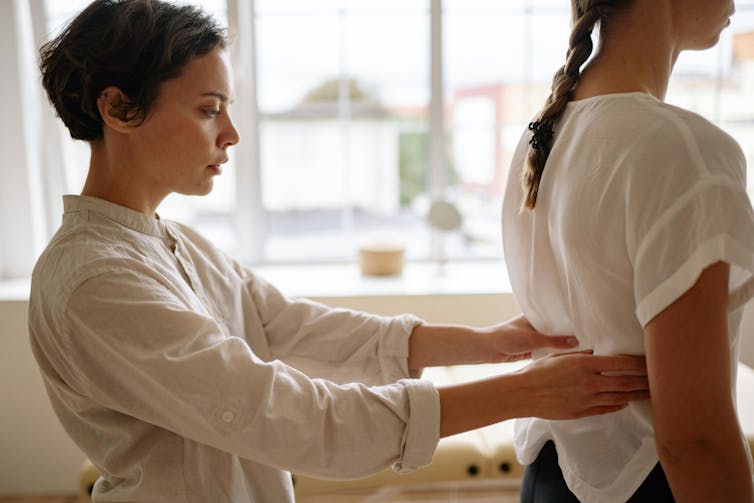
Greek Yogurt vs Cottage Cheese – Which is Healthier?
10almonds is reader-supported. We may, at no cost to you, receive a portion of sales if you purchase a product through a link in this article.
Our Verdict
When comparing Greek yogurt to cottage cheese, we picked the yogurt.
Why?
These are both dairy products popularly considered healthy, mostly for their high-protein, low-carb, low-fat profile. We’re going to assume that both were made without added sugars. Thus, their macro profiles are close to identical, and nothing between them there.
In the category of vitamins, both are a good source of some B vitamins, and neither are good source of much else. The B-vitamins they have most of, B2 and B12, Greek yogurt has more.
We’ll call this a small win for Greek yogurt.
As they are dairy products, you might have expected them to contain vitamin D—however (unless they have been artificially fortified, as is usually done with plant-based equivalents) they contain none or trace amounts only.
When it comes to minerals, both are reasonable sources of calcium, selenium, and phosphorus. Of these, they’re equal on the selenium, while cottage cheese has more phosphorus and Greek yogurt has more calcium.
Since it’s also a mineral (even if it’s usually one we’re more likely to be trying to get less of), it’s also worth noting here that cottage cheese is quite high in sodium, while Greek yogurt is not.
Another win for Greek yogurt.
Beyond those things, we’d be remiss not to mention that Greek yogurt contains plenty of probiotic bacteria, while cottage cheese does not.
Want to learn more?
You might like to read:
Take care!
Don’t Forget…
Did you arrive here from our newsletter? Don’t forget to return to the email to continue learning!
Recommended
Learn to Age Gracefully
Join the 98k+ American women taking control of their health & aging with our 100% free (and fun!) daily emails:
-
Can you ‘boost’ your immune system?
10almonds is reader-supported. We may, at no cost to you, receive a portion of sales if you purchase a product through a link in this article.
As flu season and a likely winter COVID-19 wave approach, you may encounter both proven and unproven methods claiming to “boost” your immune system. Before you reach for supplements, learn more about how the immune system works, how vaccines give us the best protection against many illnesses, and how some lifestyle factors can help your immune system function properly.
What is the immune system?
The immune system is the body’s first line of defense against invaders like viruses, bacteria, or fungi. You develop immunity—or protection from infection—when your immune system has learned how to recognize an invader and attack it before it makes you sick.
How can you boost your immune system?
You can teach your immune system how to fight back against dangerous invaders by staying up to date on vaccines. This season’s updated flu and COVID-19 vaccines target newer variants and are recommended for everyone 6 months and older.
Vaccines reduce your risk of getting sick and spreading illness to others. Even if you get infected with a disease after you’ve been vaccinated against it, the vaccine will still increase protection against severe illness, hospitalization, and death.
People who have compromised immune systems due to certain health conditions or because they need to take immunosuppressant medications may need additional vaccine doses.
Find out which vaccines you and your children need by using the CDC’s Adult Vaccine Assessment Tool and Child and Adolescent Vaccine Assessment Tool. Talk to your health care provider about the best vaccines for your family.
Find pharmacies offering updated flu and COVID-19 vaccines by visiting Vaccines.gov.
Can supplements boost your immune system?
Many vitamin, mineral, and herbal supplements that are marketed as “immune boosting” have little to no effect on your immune system. Research is split on whether some of these supplements—like vitamin C, vitamin D, and zinc—are capable of helping your body fight infections.
Plus, the Food and Drug Administration typically does not review supplements until after they have reached store shelves, and companies can sell supplements without notifying the FDA. This means that supplements may not be accurately labeled.
Eating a diverse diet rich in fruits and vegetables is the best way for most people to absorb nutrients that support optimal immune system function. People with certain health conditions and deficiencies may need specific supplements prescribed by a health care provider. For example, people with anemia may need iron supplements in order to maintain appropriate iron levels.
Before you begin taking a new supplement, talk to your health care provider, as some supplements may interact with medications you are taking or worsen certain health conditions.
Can lifestyle factors strengthen your immune system?
Based on current evidence, there is no direct link between lifestyle changes and enhanced immunity to infections. However, maintaining a healthy lifestyle through the following practices can help ensure that your immune system functions as it should:
- Eat a diet rich in fruits and vegetables.
- Exercise regularly.
- Don’t smoke.
- Limit or eliminate alcohol consumption.
- Get seven or more hours of sleep per night.
- Reduce stress.
Taking steps to avoid contact with germs also reduces your risk of getting sick. Safer sex barriers like condoms protect against HIV, while wearing a high-quality, well-fitting mask—especially in high-risk environments—protects against COVID-19. Both of these illnesses can reduce your production of white blood cells, which protect against infection.
For more information, talk to your health care provider.
This article first appeared on Public Good News and is republished here under a Creative Commons license.
Share This Post
-
What you need to know about H5N1 bird flu
10almonds is reader-supported. We may, at no cost to you, receive a portion of sales if you purchase a product through a link in this article.
On May 30, the Centers for Disease Control and Prevention reported that a Michigan dairy worker tested positive for H5N1 bird flu. It was the fourth person to test positive for H5N1 in the United States, following another recent case in Michigan, an April case in Texas, and an initial case in Colorado in 2022.
H5N1 bird flu has been spreading among bird species in the U.S. since 2021, killing millions of wild birds and poultry. In late March 2024, H5N1 bird flu was found in cows for the first time, causing an outbreak in dairy cows across several states.
U.S. public health officials and researchers are particularly concerned about this outbreak because the virus has infected cows and other mammals and has spread from a cow to a human for the first time.
This bird flu strain has shown to not only make wild mammals, including marine mammals and bears, very sick but to also cause high rates of death among species, says Jane Sykes, professor of small animal medicine at the University of California, Davis, School of Veterinary Medicine.
“And now that it has been found in cattle, [it] raises particular concern for spread to all the animal species, including people,” adds Sykes.
Even though the risk for human infection is low and there has never been human-to-human transmission of H5N1, there are several actions you can take to stay protected. Read on to learn more about H5N1 bird flu and the current outbreak.
What is H5N1?
H5N1 is a type of influenza virus that most commonly affects birds, causing them severe respiratory illness and death.
The H5N1 strain first emerged in China in the 1990s, and it has continued to spread around the world since then. In 1997, the virus spread from animals to humans in Hong Kong for the first time, infecting 18 people, six of whom died.
Since 2020, the H5N1 strain has caused “an unprecedented number of deaths in wild birds and poultry in many countries,” according to the World Health Organization.
Even though bird flu is rare in humans, an H5N1 infection can cause mild to severe illness and can be fatal in some cases. It can cause eye infection, upper respiratory symptoms, and pneumonia.
What do we know about the 2024 human cases of H5N1 in the U.S.?
The Michigan worker who tested positive for H5N1 in late May is a dairy worker who was exposed to infected livestock. They were the first to experience respiratory symptoms—including a cough without a fever—during the current outbreak. They were given an antiviral and the CDC says their symptoms are resolving.
The Michigan farm worker who tested positive earlier in May only experienced eye-related symptoms and has already recovered. And the dairy worker who tested positive for the virus in Texas in April only experienced eye redness as well, was treated with an antiviral medication for the flu, and is recovering.
Is H5N1 bird flu in the milk we consume?
The Food and Drug Administration has found traces of H5N1 bird flu virus in raw or unpasteurized milk. However, pasteurized milk is safe to drink.
Pasteurization, the process of heating milk to high temperatures to kill harmful bacteria (which the majority of commercially sold milk goes through), deactivates the virus. In 20 percent of pasteurized milk samples, the FDA found small, inactive (not live nor infectious) traces of the virus, but these fragments do not make pasteurized milk dangerous.
In a recent Infectious Diseases Society of America briefing, Dr. Maximo Brito, a professor at the University of Illinois College of Medicine, said that it’s important for people to avoid “drinking unpasteurized or raw milk [because] there are other diseases, not only influenza, that could be transmitted by drinking unpasteurized milk.”
What can I do to prevent bird flu?
While the risk of H5N1 infection in humans is low, people with exposure to infected animals (like farmworkers) are most at risk. But there are several actions you can take to stay protected.
One of the most important things, according to Sykes, is taking the usual precautions we’ve taken with COVID-19 and other respiratory viruses, including frequent handwashing, especially before eating.
“Handwashing and mask-wearing [are important], just as we learned from the pandemic,” Sykes adds. “And it’s not wearing a mask at all times, but thinking about high-risk situations, like when you’re indoors in a crowded environment, where transmission of respiratory viruses is much more likely to occur.”
There are other steps you can take to prevent H5N1, according to the CDC:
- Avoid direct contact with sick or dead animals, including wild birds and poultry.
- Don’t touch surfaces that may have been contaminated with animal poop, saliva, or mucus.
- Cook poultry and eggs to an internal temperature of 165 degrees Fahrenheit to kill any bacteria or virus, including H5N1. Generally, avoid eating undercooked food.
- Avoid consuming unpasteurized or raw milk or products like cheeses made with raw milk.
- Avoid eating uncooked or undercooked food.
- Poultry and livestock farmers and workers and bird flock owners should wear masks and other personal protective equipment “when in direct or close physical contact with sick birds, livestock, or other animals; carcasses; feces; litter; raw milk; or surfaces and water that might be contaminated with animal excretions from potentially or confirmed infected birds, livestock, or other animals.” (The CDC has more recommendations for this population here.)
Is there a vaccine for H5N1?
The CDC said there are two candidate H5N1 vaccines ready to be made and distributed in case the virus starts to spread from person to person, and the country is now moving forward with plans to produce millions of vaccine doses.
The FDA has approved several bird flu vaccines since 2007. The U.S. has flu vaccines in stockpile through the National Pre-Pandemic Influenza Vaccine Stockpile program, which allows for quick response as strains of the flu virus evolve.
Could this outbreak become a pandemic?
Scientists and researchers are concerned about the possibility of H5N1 spreading among people and causing a pandemic. “Right now, the risk is low, but as time goes on, the potential for mutation to cause widespread human infection increases,” says Sykes.
“I think this virus jumping into cows has shown the urgency to keep tracking [H5N1] a lot more closely now,” Peter Halfmann, research associate professor at the University of Wisconsin-Madison’s Influenza Research Institute tells PGN. “We have our eyes on surveillance now. … We’re keeping a much closer eye, so it’s not going to take us by surprise.”
This article first appeared on Public Good News and is republished here under a Creative Commons license.
Share This Post
-
Wasting Your Vitamins?
10almonds is reader-supported. We may, at no cost to you, receive a portion of sales if you purchase a product through a link in this article.
Are you flushing away your vitamins?
Most likely…but you don’t have to.
We all know what a wasteful expense supplements can sometimes be, but you can optimise your intake to get more bang for your buck!
Top Tips for Getting Your Money’s Worth:
- Liquids are better than tablets—the body can’t absorb nutrients from tablets anywhere as easily as it can from liquids, with some saying as low as a 50% absorption rate for tablets, so if your supplement can come in drinkable form, take it that way!
- Capsules are better than tablets—capsules, depending on the kind, contain either a powder (true capsules) or a liquid (softgels). Once the capsule/softgel is broken down in the stomach, it releases its contents, which will now be absorbed as though you took it as a drink.
- Stay hydrated—on that note, your body can only make use of nutrients that it can easily transport, and if you’re dehydrated, the process is sluggish! Having a big glass of water with your supplements will go a long way to helping your body get them where they’re needed.
- Take with black pepper—studies disagree on exactly how much black pepper improves absorption of nutrients. Some say it improves it by 50%, others say as much as 7x better. The truth is probably that it varies from one nutrient to the next, but what is (almost) universally accepted is that black pepper helps you absorb many nutrients you take orally.
- Take with a meal—bonus if you seasoned it with black pepper! But also: many nutrients are best absorbed alongside food, and many are specifically fat-soluble (so you want to take a little fat around the same time for maximum absorption)
- Consider split doses—a lot of nutrients are best absorbed when spread out a bit. Why? Your body can often only absorb so much at once, and what it couldn’t absorb can, depending on the nutrient, pass right through you. So better to space out the doses—breakfast and dinner make for great times to take them.
- Consider cycling—no, not the two-wheeled kind, though feel free to do that too! What cycling means when it comes to supplements is to understand that your body can build a tolerance to some supplements, so you’ll get gradually less effect for the same dose. Combat this by scheduling a break—five days on, two days off is a common schedule—allowing your body to optimise itself in the process!
- Check Medications—and, as is always safe, make sure you check whether any medications you take can interrupt your supplement absorption!
Share This Post
Related Posts
-
“The Longevity Vitamin” (That’s Not A Vitamin)
10almonds is reader-supported. We may, at no cost to you, receive a portion of sales if you purchase a product through a link in this article.
The Magic of Mushrooms
“The Longevity Vitamin that’s not a vitamin” is a great tagline for what’s actually an antioxidant amino acid nutraceutical, but in this case, we’re not the ones spearheading its PR, but rather, the Journal of Nutritional Science:
Is ergothioneine a “longevity vitamin” limited in the American diet?
It can be found in all foods, to some extent, but usually in much tinier amounts than would be useful. The reason for this is that it’s synthesized by a variety of microbes (mostly fungi and actinobacteria), and enters the food chain via vegetables that are grown in soil that contain such (which is basically all soil, unless you were to go out of your way to sterilize it, or something really unusually happened).
About those fungi? That includes common popular edible fungi, where it is found quite generously. An 85g (3oz) portion of (most) mushrooms contains about 5mg of ergothioneine, the consumption of which is associated with a 16% reduced all-cause mortality:
However… Most Americans don’t eat that many mushrooms, and those polled averaged 1.1mg/day ergothioneine (in contrast with, for example, Italians’ 4.6mg/day average).
Antioxidant properties
While its antioxidant properties aren’t the most exciting quality, they are worth a mention, on account of their potency:
The biology of ergothioneine, an antioxidant nutraceutical
This is also part of its potential bid to get classified as a vitamin, because…
❝Decreased blood and/or plasma levels of ergothioneine have been observed in some diseases, suggesting that a deficiency could be relevant to the disease onset or progression❞
Source: Ergothioneine: a diet-derived antioxidant with therapeutic potential
Healthy aging
Building on from the above, ergothioneine has been specifically identified as being associated with healthy aging and the prevention of cardiometabolic diseases:
❝An increasing body of evidence suggests ergothioneine may be an important dietary nutrient for the prevention of a variety of inflammatory and cardiometabolic diseases and ergothioneine has alternately been suggested as a vitamin, “longevity vitamin”, and nutraceutical❞
~ Dr. Bernadette Moore et al., citing more references every few words there
Source: Ergothioneine: an underrecognised dietary micronutrient required for healthy ageing?
Good for the heart = good for the brain
As a general rule of thumb, “what’s good for the heart is good for the brain” is almost always true, and it appears to be so in this case, too:
❝Ergothioneine crosses the blood–brain barrier and has been reported to have beneficial effects in the brain. In this study, we discuss the cytoprotective and neuroprotective properties of ergotheioneine, which may be harnessed for combating neurodegeneration and decline during aging.❞
Source: Ergothioneine: A Stress Vitamin with Antiaging, Vascular, and Neuroprotective Roles?
Want to get some?
You can just eat a portion of mushrooms per day! But if you don’t fancy that, it is available as a supplement in convenient 1/day capsule form too.
We don’t sell it, but for your convenience, here is an example product on Amazon
Enjoy!
Don’t Forget…
Did you arrive here from our newsletter? Don’t forget to return to the email to continue learning!
Learn to Age Gracefully
Join the 98k+ American women taking control of their health & aging with our 100% free (and fun!) daily emails:
-
Grapes vs Strawberries – Which is Healthier?
10almonds is reader-supported. We may, at no cost to you, receive a portion of sales if you purchase a product through a link in this article.
Our Verdict
When comparing strawberries to grapes, we picked the strawberries.
Why?
In terms of macros, grapes have more than 2x the carbs while strawberries have more than 2x the fiber, making this category an easy win for strawberries.
In the category of vitamins, grapes have more of vitamins A, B1, B2, B6, and K, while strawberries have more of vitamins B3, B5, B9, C, and E, making for a 5:5 tie with comparable margins of difference.
Looking at minerals, grapes have more potassium and manganese, while strawberries have more calcium, copper, iron, magnesium, phosphorus, selenium, and zinc. A clear win for strawberries here.
When it comes to polyphenols, both of these fruits are abundant in many polyphenols, but it might interest you to know that strawberries have slightly more resveratrol than red/black grapes! Still, it’s close, and there are many other polyphenols in both, and honestly we’re calling this category a tie.
Adding up the sections makes for a compelling overall win for strawberries, but by all means enjoy either or both; diversity is good!
Want to learn more?
You might like:
Can We Drink To Good Health? ← while there are polyphenols such as resveratrol in red wine that per se would boost heart health, there’s so little per glass that you may need 100–1000 glasses per day to get the dosage that provides benefits in mouse studies.
If you’re not a mouse, you might even need more than that!
To this end, many people prefer resveratrol supplementation ← link is to an example product on Amazon, but there are plenty more so feel free to shop around 😎
Enjoy!
Don’t Forget…
Did you arrive here from our newsletter? Don’t forget to return to the email to continue learning!
Learn to Age Gracefully
Join the 98k+ American women taking control of their health & aging with our 100% free (and fun!) daily emails:
-
Elon Musk says ‘disc replacement’ worked for him. But evidence this surgery helps chronic pain is lacking
10almonds is reader-supported. We may, at no cost to you, receive a portion of sales if you purchase a product through a link in this article.
Last week in a post on X, owner of the platform Elon Musk recommended people look into disc replacement if they’re experiencing severe neck or back pain.
According to a biography of the billionaire, he’s had chronic back and neck pain since he tried to “judo throw” a 350-pound sumo wrestler in 2013 at a Japanese-themed party for his 42nd birthday, and blew out a disc at the base of his neck.
In comments following the post, Musk said the surgery was a “gamechanger” and reduced his pain significantly.
Musk’s original post has so far had more than 50 million views and generated controversy. So what is disc replacement surgery and what does the evidence tells us about its benefits and harms?
What’s involved in a disc replacement?
Disc replacement is a type of surgery in which one or more spinal discs (a cushion between the spine bones, also known as vertebrae) are removed and replaced with an artificial disc to retain movement between the vertebrae. Artificial discs are made of metal or a combination of metal and plastic.
Disc replacement may be performed for a number of reasons, including slipped discs in the neck, as appears to be the case for Musk.
Disc replacement is major surgery. It requires general anaesthesia and the operation usually takes 2–4 hours. Most people stay in hospital for 2–7 days. After surgery patients can walk but need to avoid things like strenuous exercise and driving for 3–6 weeks. People may be required to wear a neck collar (following neck surgery) or a back brace (following back surgery) for about 6 weeks.
Costs vary depending on whether you have surgery in the public or private health system, if you have private health insurance, and your level of coverage if you do. In Australia, even if you have health insurance, a disc replacement surgery may leave you more than A$12,000 out of pocket.
Disc replacement surgery is not performed as much as other spinal surgeries (for example, spinal fusion) but its use is increasing.
In New South Wales for example, rates of privately-funded disc replacement increased six-fold from 6.2 per million people in 2010–11 to 38.4 per million in 2019–20.
What are the benefits and harms?
People considering surgery will typically weigh that option against not having surgery. But there has been very little research comparing disc replacement surgery with non-surgical treatments.
Clinical trials are the best way to determine if a treatment is effective. You first want to show that a new treatment is better than doing nothing before you start comparisons with other treatments. For surgical procedures, the next step might be to compare the procedure to non-surgical alternatives.
Unfortunately, these crucial first research steps have largely been skipped for disc replacement surgery for both neck and back pain. As a result, there’s a great deal of uncertainty about the treatment.
There are no clinical trials we know of investigating whether disc replacement is effective for neck pain compared to nothing or compared to non-surgical treatments.
For low back pain, the only clinical trial that has been conducted to our knowledge comparing disc replacement to a non-surgical alternative found disc replacement surgery was slightly more effective than an intensive rehabilitation program after two years and eight years.
Many people experience chronic pain. Yan Krukau/Pexels Complications are not uncommon, and can include disclocation of the artificial disc, fracture (break) of the artificial disc, and infection.
In the clinical trial mentioned above, 26 of the 77 surgical patients had a complication within two years of follow up, including one person who underwent revision surgery that damaged an artery leading to a leg needing to be amputated. Revision surgery means a re-do to the primary surgery if something needs fixing.
Are there effective alternatives?
The first thing to consider is whether you need surgery. Seeking a second opinion may help you feel more informed about your options.
Many surgeons see disc replacement as an alternative to spinal fusion, and this choice is often presented to patients. Indeed, the research evidence used to support disc replacement mainly comes from studies that compare disc replacement to spinal fusion. These studies show people with neck pain may recover and return to work faster after disc replacement compared to spinal fusion and that people with back pain may get slightly better pain relief with disc replacement than with spinal fusion.
However, spinal fusion is similarly not well supported by evidence comparing it to non-surgical alternatives and, like disc replacement, it’s also expensive and associated with considerable risks of harm.
Fortunately for patients, there are new, non-surgical treatments for neck and back pain that evidence is showing are effective – and are far cheaper than surgery. These include treatments that address both physical and psychological factors that contribute to a person’s pain, such as cognitive functional therapy.
While Musk reported a good immediate outcome with disc replacement surgery, given the evidence – or lack thereof – we advise caution when considering this surgery. And if you’re presented with the choice between disc replacement and spinal fusion, you might want to consider a third alternative: not having surgery at all.
Giovanni E Ferreira, NHMRC Emerging Leader Research Fellow, Institute of Musculoskeletal Health, University of Sydney; Christine Lin, Professor, Institute for Musculoskeletal Health, University of Sydney; Christopher Maher, Professor, Sydney School of Public Health, University of Sydney; Ian Harris, Professor of Orthopaedic Surgery, UNSW Sydney, and Joshua Zadro, NHMRC Emerging Leader Research Fellow, University of Sydney
This article is republished from The Conversation under a Creative Commons license. Read the original article.
Don’t Forget…
Did you arrive here from our newsletter? Don’t forget to return to the email to continue learning!
Learn to Age Gracefully
Join the 98k+ American women taking control of their health & aging with our 100% free (and fun!) daily emails:

